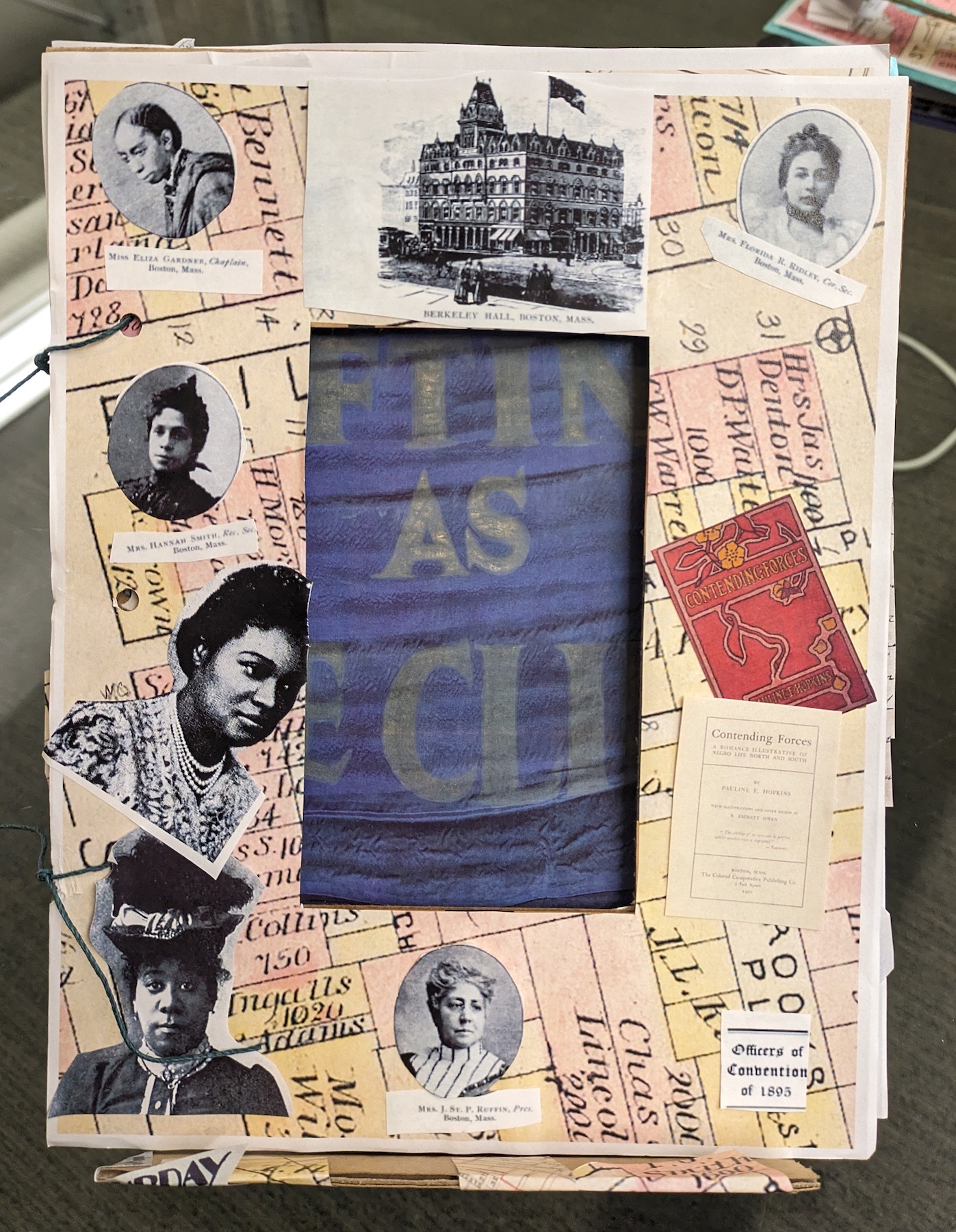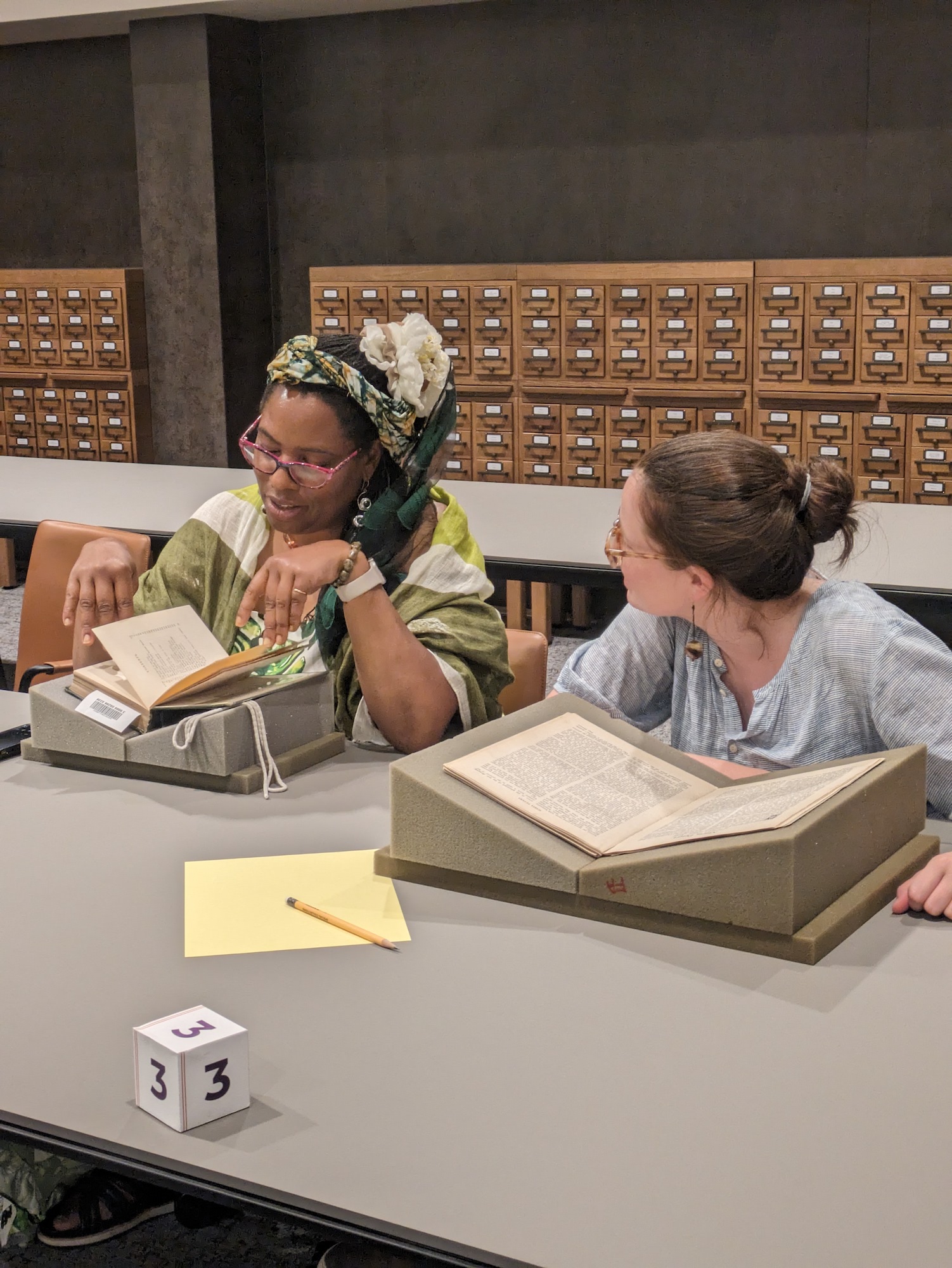From July 10-12, the Leventhal Map & Education Center hosted a group of Boston area K-12 educators for the workshop Lifting as we Climb: Black Women’s Activism in Turn-of-the-20th-Century Boston. Connected to the Center’s Building Blocks exhibition and funded by a Library of Congress Teaching with Primary Sources Eastern Region grant, this 3-day workshop was designed to expand educators’ knowledge of the role and impact of women in Boston’s Black history and to explore geographies of Black Boston in the past and present.

Building Blocks introduces the story of Florida Ruffin Ridley, an activist and author living and working in Boston during the period the urban atlases were created. Florida’s family and activism opens up lines of inquiry that help us to consider how we might look at maps, archival resources and memorials to talk about whose stories are told and remembered and how to support the teaching of these ideas.
Presenters and planning partners for the workshop included Boston-based artist and educator L’Merchie Frazier, Lois Brown, ASU Foundation Professor of English and Director of the Center for Race and Democracy and Alexandria Russell, Harvard and the Legacy of Slavery research fellow.
The workshop highlighted some important collections held by the Boston Public Library and educators got the chance to view original objects in the Special Collections Department. Items included letters written by Florida Ruffin Ridley’s mother, Josephine St. Pierre Ruffin as part of the planning of the First National Conference of Colored Women of America in Boston in 1895. Also included were issues of The Women’s Era, the first national newspaper published by and for Black women in the United States. Josephine St. Pierre Ruffin and Florida Ruffin Ridley founded the Woman’s Era Club, along with educator Maria Louise Baldwin, and mother and daughter served as editors for their publication. The BPL holds more issues of the Women’s Era than any other institution and it is believed the issues were ones owned by Florida Ruffin Ridley herself.

Teachers also explored the nearby Back Bay and South End neighborhoods by using Atlascope to explore how the built environment has changed over time and where we can see evidence on the maps of people and communities. For example, the Harriet Tubman House, a settlement house founded by six Black women to provide housing and support for recently arrived southern Black women, was originally located at 37 Holyoke Street and later at 25 Holyoke street. It first appears on the 1922 layer in Atlascope, then at the home of one of the founders, Julia O. Henson.
Teachers first used Atlascope while walking around the Holyoke Street area and noted any differences and change over time. Then they read a short document about the history of the Harriet Tubman House and discussed how this new information added to or complicated the story of the location. Several of the other addresses explored were in the same area and teachers talked together about the geographic interconnectedness of the women and organizations.
The workshop ended with an exploration of two adjacent monuments on Boston Common: the Boston Massacre/Crispus Attucks monument and the Embrace. L’Merchie Frazier discussed her role on the panel that selected the final design with community input and the artist’s intention in memorializing Dr. Martin Luther King and Corretta Scott King, both with ties to Boston. Educators then synthesized their new knowledge and some themes of the workshop by creating tunnel books. These books served as memorials to one or more of the women studied in the workshop as well as the ways in which these women challenged racial injustices and celebrated their community and others doing the same work across the country.

You can learn more about Florida Ruffin Ridley by visiting the Building Blocks exhibition in person or online.
Our articles are always free
You’ll never hit a paywall or be asked to subscribe to read our free articles. No matter who you are, our articles are free to read—in class, at home, on the train, or wherever you like. In fact, you can even reuse them under a Creative Commons CC BY-ND 2.0 license.